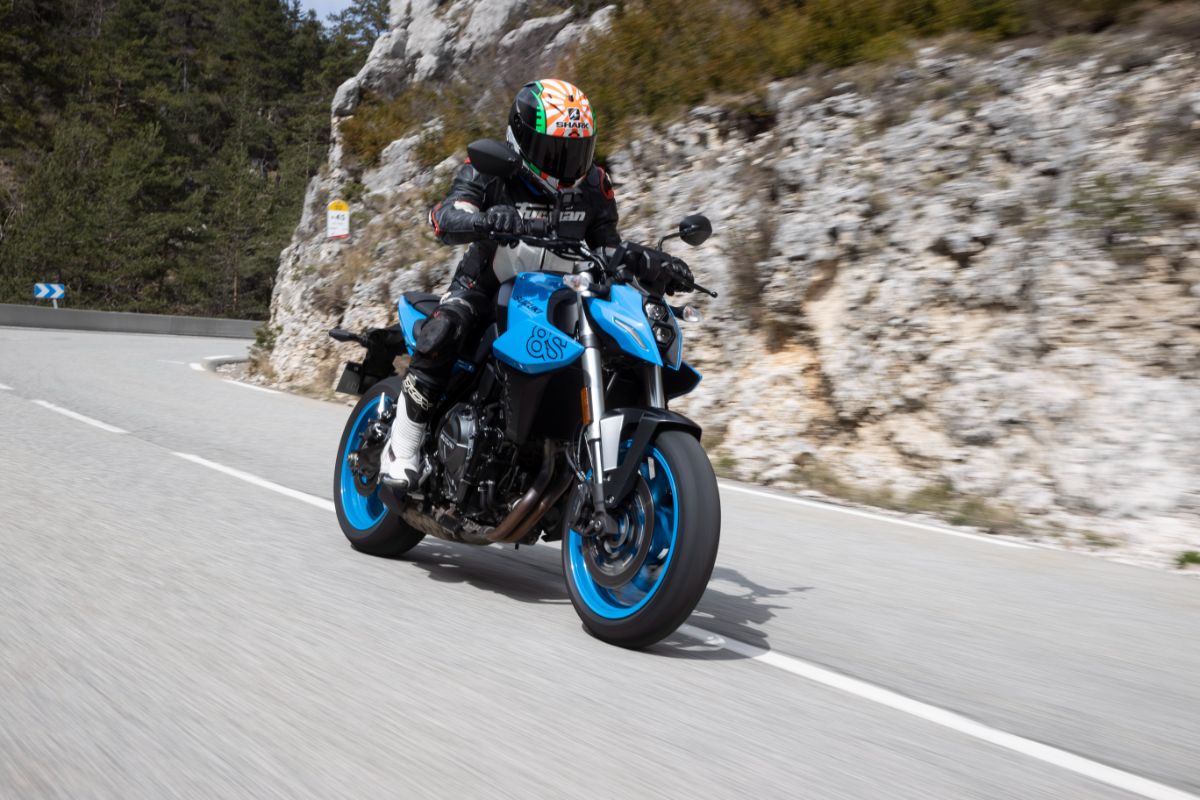The start of the ride, around the streets of affluent French city Antibes, wasn’t what it could have been. Chilly temperatures, and heavily congested traffic exacerbated by a road closure, all conspired to prevent full enjoyment. Luckily though, the adverse circumstances also underlined one of the all-new Suzuki GSX-8S’s very best features – its remarkable manageability. A lovely, flexible engine, flickable chassis and generally well-mannered overall feel, makes the naked streetfighter-styled roadster an easy, light, agile, and fun bike to ride – even in a busy town. It’s a trademark feeling that continued right until the end of the ride. To be honest, the more miles I clocked on this bike, the more affection I felt for it. I suspect the approval would have increased still further if I’d ridden it for longer.
The ease with which the 800 had dealt with the earlier urban gridlock had made it especially appealing. Let’s face it, it’s a very useful feature these days in our all-too-often traffic-laden nation. So too is the user-friendly, and readily accessible nature of its higher performance, something that became all too evident as the roads opened up, traffic cleared, and pace increased.
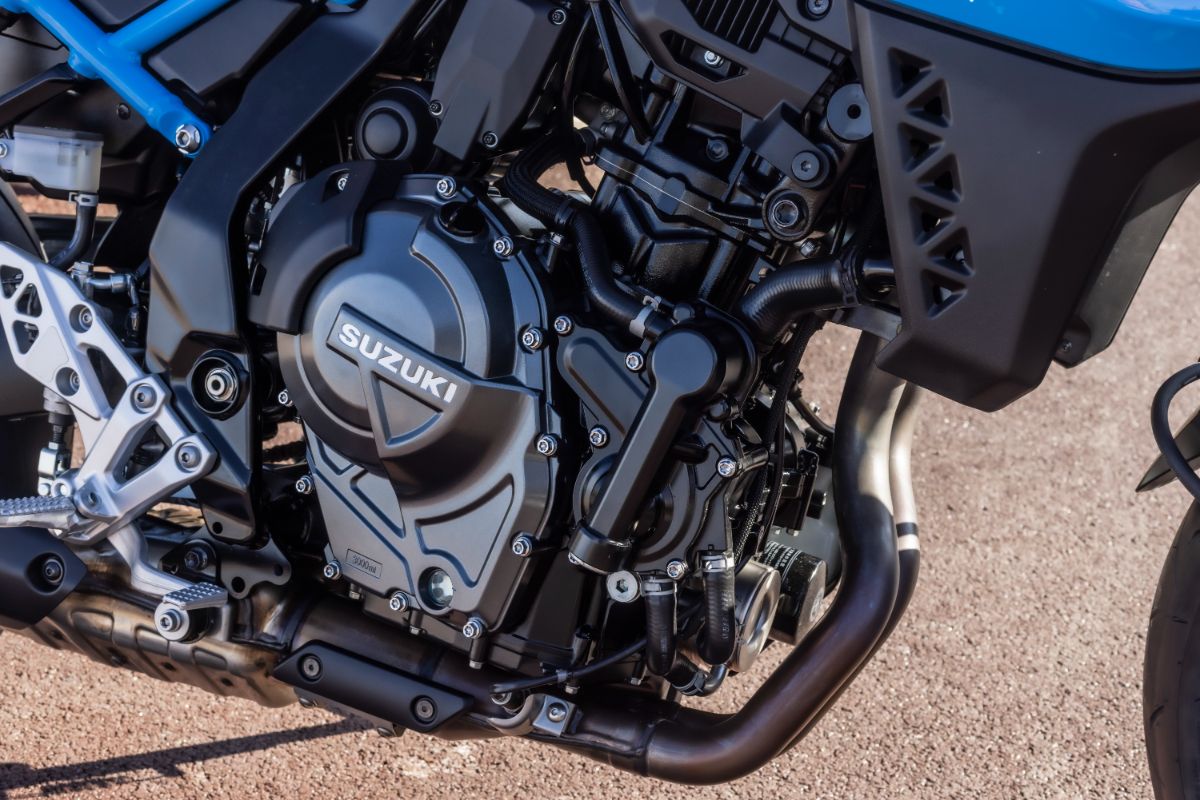
The engine, already familiar to me as it’s the same one fitted to the V-Strom 800 I’d tested just a few weeks previously, very much influences the positive opinion. I really think it feels quite special, and very real world. Thanks to its parallel twin cylinder layout, longer stroke, and big-bang 270° firing order, throttle response is remarkably profitable. Notably keen obedience to twistgrip turning is constantly evident, even in the bigger gears and low revs. That very welcome flexibility is one of the primary reasons the 8S feels so relaxing and easy to ride. Along the flowing mountain roads where there’s greater freedom to ride faster, I only really needed the top two gears to maintain swift progress. Mind you, given the standard fitment bi-directional quick-shifter and slick gearbox making it so very easy to swap cogs, I did like deliberately working the engine harder at times, just for the fun of it. It does start to run out of puff a little when you get beyond its peak power and torque prior to the 9800rpm redline. But as the mid-range drive is so good and healthy, short-shifting into a higher gear often negates any point in spinning the engine that hard anyway. All in all, the parallel twin is a truly excellent motor that provides more than enough performance, very rarely feeling excessive or seeming like it’ll become too much of a handful. I’ll reserve final judgement for when I ride it back in the UK, but I’m very tempted to say it’s one of the most impressive engines of its capacity I’ve tried in years. Smooth, nicely fuelled and so, so usable, the 800 motor is very hard to fault. There are three rider modes which only alter the throttle response, but though I tried them all, in the end I settled for the middle B setting and was happy with that thanks to the engine’s excellent manners.
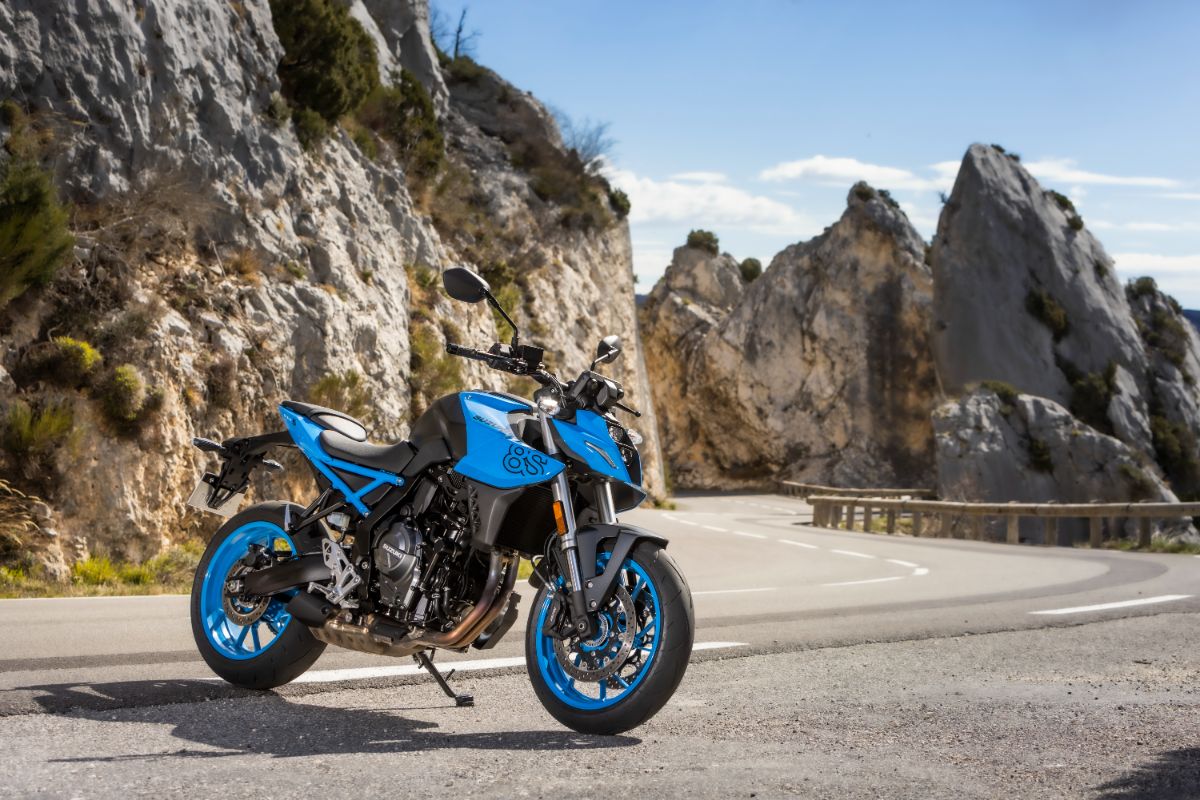
Compliments continue with chassis assessment. That same easy, predictable feel that makes town work so straightforward, makes swifter riding enjoyable too. Quick direction changing needs little physical persuasion, and though the suspension seems quite basic in spec, with the only adjustment being preload on the rear shock, it offers decent wheel control at both ends. I felt the rear end squat down quite a bit on a couple of occasions, but it was never worrying, and I always felt in full control of the Suzuki. Despite the 800’s agility, stability was never in question, even when running over more serious bumps at speed. Strong, but progressive brakes help maintain the overall level of safety and control, and further aid the bike’s manageability regardless of how hard you’re pushing it.
Only when you’re asking a hell of a lot of the GSX at more acute lean angles might you be critical of the set-up. Under those circumstances, the OE Dunlop Sportmax Roadsport 2 tyres feel a little vague right on the edge. I never had a single moment on them during the course of the whole test, but I would have felt a little more comfortable with more feel and feedback when leant right over. For most circumstances though, the rubber felt totally fine.
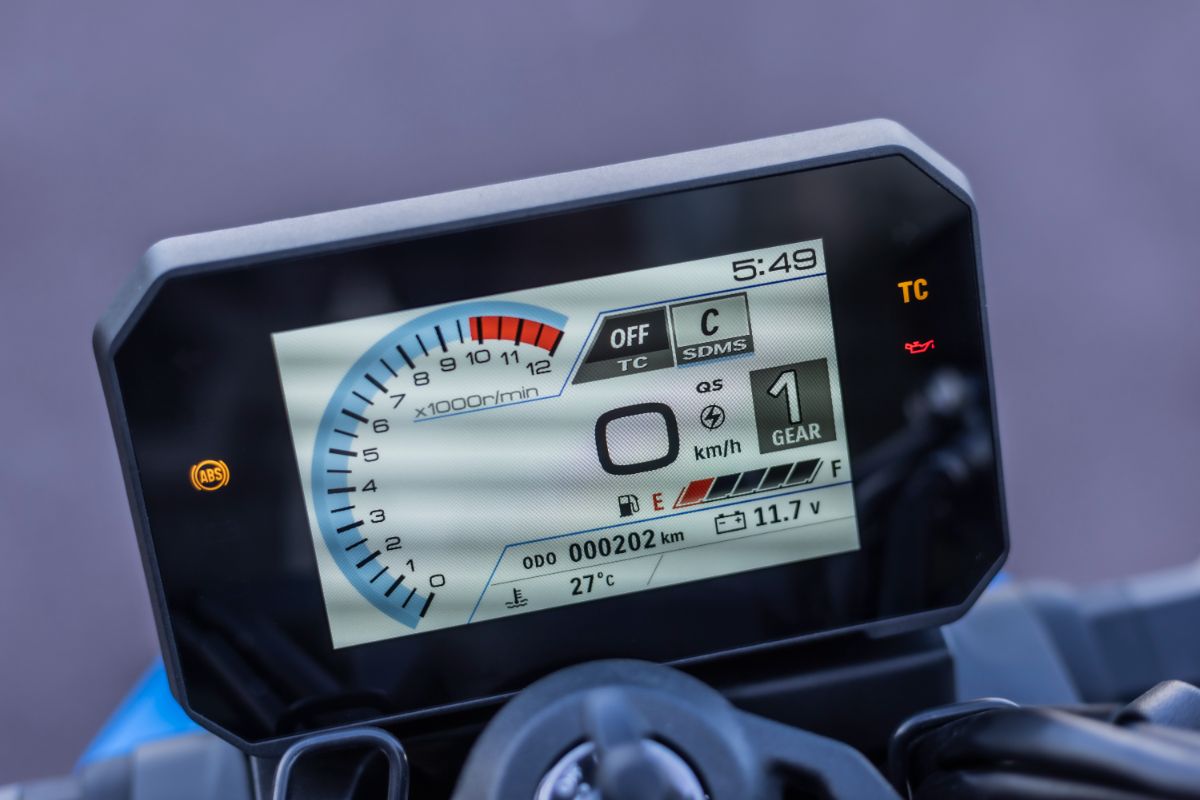
While I’m moaning, I wouldn’t have minded an ambient temperature gauge included in the layout of the otherwise very informative 5” TFT dash. During the cooler initial stages of the ride, it would have been nice to know just what sort of grip levels to expect, especially when I saw some frost in the more shaded areas up in the mountains. A rear hugger would be a useful addition too, preventing the bike getting too filthy around the rear shock area if you ride it in bad weather. Some sort of extra upper body wind protection could help on longer rides, and though I can’t fully vouch for its comfort over extended periods in the seat, the riding position and saddle itself do seem conducive to bigger mile outings. Suzuki claims a range of up to 200 miles from the 14-litre tank.
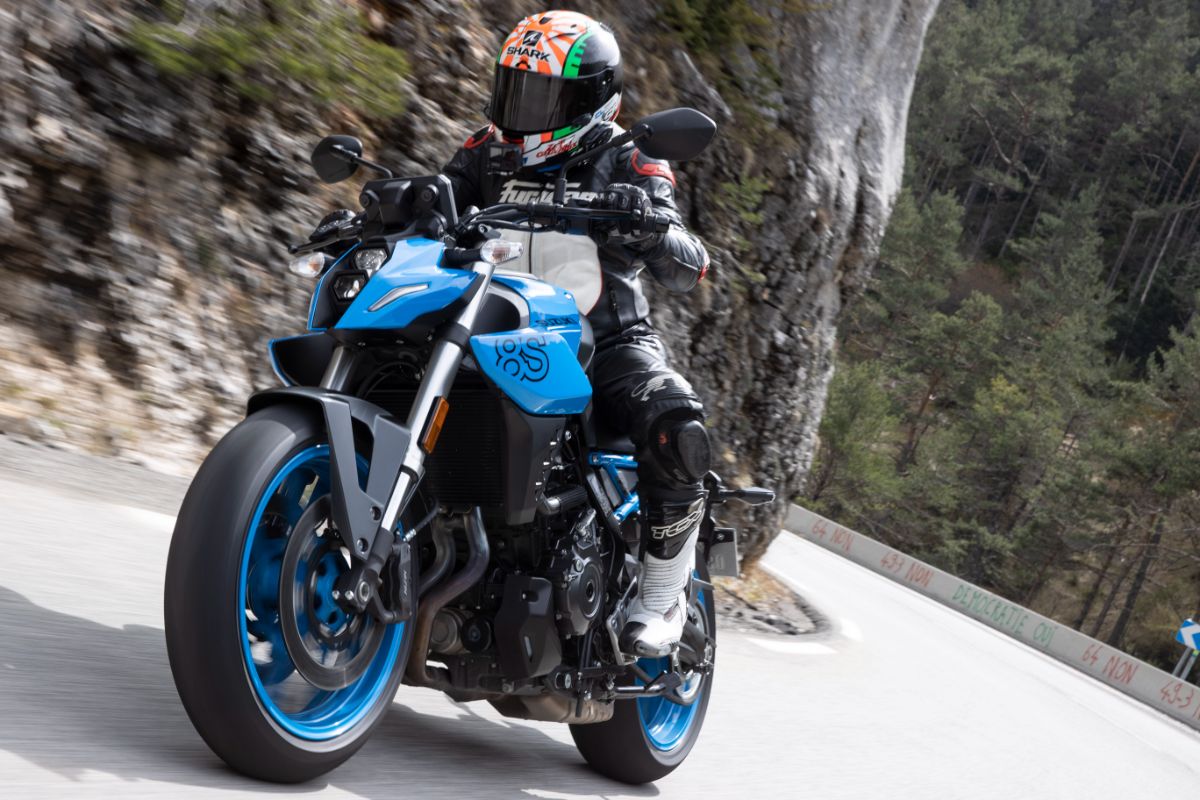
Bar the minor niggles, I have little to fault the new Suzuki for. On paper, its mechanical and electronic spec might seem a little modest. But it’s a bit of a dark horse really, and given how well it rides and how user-friendly it is, even when you’re using a lot of its performance, overall you have to rate the new GSX-8S very highly. It’s an easy to underrate motorcycle that actually adds up to more than the sum of its parts. Priced at £8155 on the road, its price tag adds to the attraction too. The impressive GSX-8S should be in UK dealers at the end of April.
2023 Suzuki GSX-8S specification
Price: £8,155
Engine: 776cc, parallel-twin
Power: 84bhp/62kW @ 8500rpm
Torque: 78Nm/58lb.ft @ 6800rpm
Transmission: Six-speed, chain final drive
Frame: Steel-tubed frame
Suspension: Non-adjustable 43mm KYB inverted telescopic fork. Preload-adjustable KYB link-type, mono-shock
Brakes: Radially-mounted, four-piston front brake callipers and 310mm floating discs. Single-piston, pin-slide rear calliper and a 240mm disc.
Wheels: 17” front, 17” rear, cast alloy
Tyres: Front 120/70-17. Rear 180/55-17.
Wheelbase: 1,465mm
Ground clearance: 145mm
Seat height: 810mm
Kerb weight: 202kg
Fuel capacity: 14 litres
Contact: bikes.suzuki.co.uk
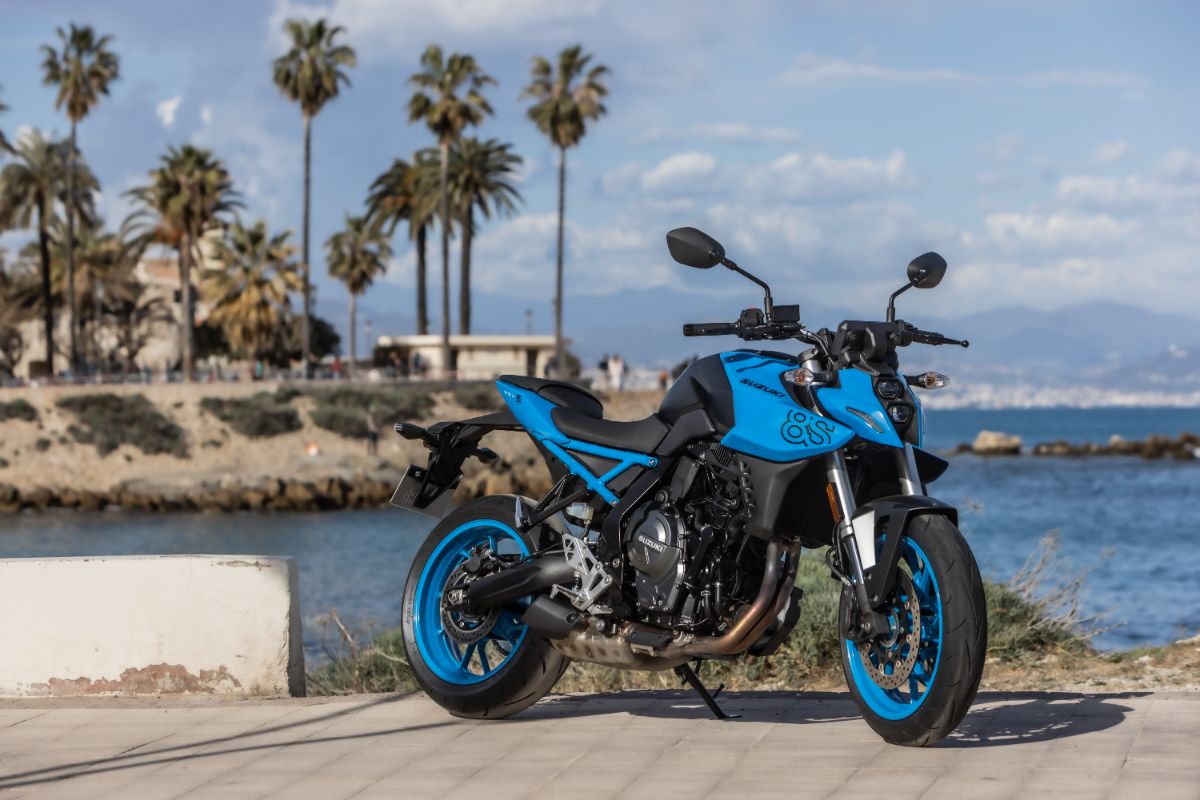
Words: Chris Moss
Photos: Jason Critchell, Chippy Wood


